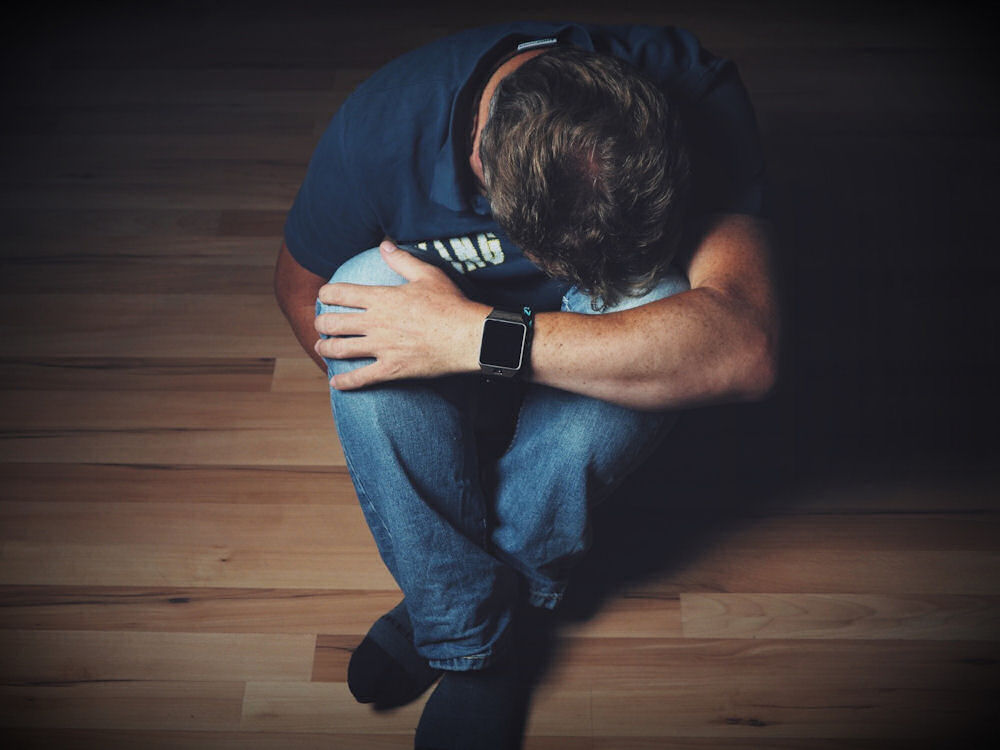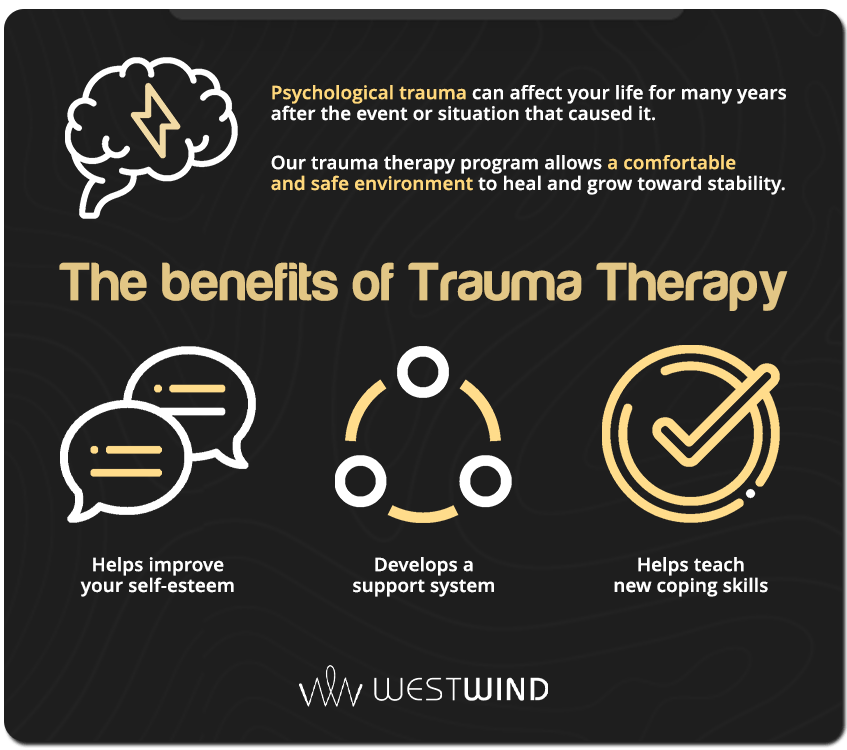Healing from trauma can seem like a daunting task, especially if the cause of your trauma is significant. But there is hope and healing available for those who have experienced traumatic events. Trauma recovery requires patience, resilience, and hard work. However, with the right support and strategies, it is possible to heal from trauma and reclaim a sense of peace.
What is Trauma?
Trauma is an emotional response to a terrible event. It can include the physical and psychological effects of overwhelming stress, such as feeling powerless or fearful. Trauma can occur after experiencing a car accident, natural disaster, abuse, assault, violence, physical injury, or other life-threatening incidents. Trauma symptoms may include depression, anxiety, flashbacks, nightmares, and difficulty concentrating. We can help you today at our trauma therapy program in Los Angeles.
What is Emotional and Psychological Trauma?
Emotional and psychological trauma is the result of extraordinarily stressful events that shatter your sense of security. These events make you feel helpless and vulnerable in a dangerous world. No matter the cause of the trauma, the effects are often long-lasting. The effects of trauma can deeply affect an individual’s physical, emotional, psychological, and spiritual well-being. Trauma can be caused by a wide variety of events that include the following:
- Abuse (sexual, physical, or emotional)
- Accidents
- Natural disasters
- Death of a loved one
- War or terrorism
What are the Emotional, Psychological, and Physical Symptoms of Trauma?
Trauma can impact a person both emotionally and physically, causing long-term psychological effects that are often difficult to overcome. Emotional symptoms of trauma may include feelings of sadness, guilt, shame, hopelessness, anger, loneliness, fear, anxiety, or numbness. People who have experienced trauma may also experience difficulty sleeping or concentrating due to intrusive thoughts related to the trauma. Other common emotional symptoms of trauma include the following:
- Difficulties in relationships
- Difficulty trusting others
- Sense of helplessness
- Disconnection from the world
Physical symptoms of trauma can range from exhaustion and headaches to stomach pain and muscle tension. People may also experience the following:
- Changes in their appetite or weight
- Chronic fatigue
- Dizziness
- Heart palpitations
- Nausea
- Chest pain
- Changes in their breathing
- Increased startle reflex
- Exaggerated responses to loud noises
- Difficulty with concentration and memory
Psychological trauma often includes a variety of symptoms. These may include the following:
- Intrusive thoughts relating to the traumatic event
- Flashbacks or nightmares
- Avoidance behaviors (avoiding activities that trigger memories of the trauma)
- Difficulty processing emotions or feeling emotionally numb
People who have experienced trauma may also experience feelings of guilt, shame, or self-blame. In addition to this, they may experience dissociation from their body or mind. They may also develop coping mechanisms such as substance abuse or compulsive behaviors. They do this to cope with the emotional distress caused by the trauma.
Childhood Trauma and the Risk of Future Trauma
Childhood trauma can have long-lasting impacts on an individual’s physical and mental health. Those who experience childhood trauma are more likely to face a greater risk of future traumas as adults. Adults who have experienced four or more traumatic events in their childhood are nearly three times more likely to suffer from depression and anxiety. This is opposed to those without any childhood traumas. Additionally, individuals who have experienced trauma as children are more likely to develop post-traumatic stress disorder (PTSD) in the future.
Unfortunately, childhood trauma can also lead to a greater risk of developing addictions and other mental health disorders. Those with a history of childhood trauma may resort to drug and alcohol abuse to cope with their feelings of helplessness, loneliness, or fear. Furthermore, those with childhood traumas may develop eating disorders as a result of their experience.
Childhood trauma can also lead to poor physical health. Those who experienced trauma as children are more likely to have high blood pressure, diabetes, obesity, and other illnesses in adulthood. It is important to acknowledge and address the effects of childhood trauma as it can lead to a greater risk of developing physical, mental, and emotional health issues in adulthood.
What are the Three Parts of a Traumatic Experience?
Traumatic experiences are composed of three distinct parts. These parts work together to create a powerful and lasting psychological reaction. These three components include the individual’s initial perception of the event, their emotional reaction to it, and their physiological response.
The individual’s first impression of the traumatic incident is integral in determining how they will respond. This can be anything from feeling a sense of shock and disbelief to being overwhelmed by fear or panic. How an individual perceives the event can also lead them to become hyper-vigilant and reactive, always on edge as they anticipate further danger. This initial perception is often expressed in terms of a heightened sense of awareness that may result in intense emotions such as terror or despair.
The emotional reaction that follows the individual’s perception of the incident can be incredibly intense. It is not uncommon for someone who has experienced a traumatic event to feel overwhelmed by various emotions such as guilt, shame, anger, or sadness. These feelings can be overwhelming and long-lasting, and may even lead to psychological disorders such as depression or post-traumatic stress disorder (PTSD).
The physiological response to a traumatic event is also an important part of the experience. When faced with a threat, the body’s natural “flight or fight” response kicks in. This results in physical changes such as rapid heart rate and breathing, increased blood pressure, and muscular tension. These physical reactions can be so intense that they can lead to panic attacks or other symptoms of anxiety.
Is it Possible to Heal from Trauma?
 It is absolutely possible to heal from trauma, but it takes time. Trauma can have a wide range of effects and the healing process will be different for everyone. It is important to seek professional help if you believe that your trauma is impacting your everyday life in a negative way. A therapist or qualified practitioner can provide guidance and support, helping to process and make sense of your experiences.
It is absolutely possible to heal from trauma, but it takes time. Trauma can have a wide range of effects and the healing process will be different for everyone. It is important to seek professional help if you believe that your trauma is impacting your everyday life in a negative way. A therapist or qualified practitioner can provide guidance and support, helping to process and make sense of your experiences.
In addition to this, there are a number of other strategies that can be helpful in healing from trauma. These include self-care practices such as mindfulness, breathing exercises, yoga, meditation, journaling, and creative expression. Making sure to get adequate sleep, eating a balanced diet, and exercising regularly can also help to restore physical and mental health.
It is important to remember that healing from trauma is a process, and it can take time. There may be setbacks along the way, but with patience and perseverance, recovery is possible. With the right support and strategies in place, it is possible to cope with trauma and live a peaceful life.
10 Tips on How to Heal from Trauma
There are many ways to heal from trauma. At Westwind Recovery®, we have 10 tips on how to heal from trauma. These 10 tips on how to heal from trauma include the following:
It’s important to find a safe and comfortable place where you can freely process and express the range of emotions associated with trauma without fear of judgment or criticism. This could be in the form of talking to friends, family members, or professionals such as therapists who specialize in trauma therapy.
While it’s natural to want to escape any uncomfortable emotions associated with trauma, it is important to lean into those feelings in order to process and heal. Trying activities like journaling and talking through your experience can help you face these difficult emotions.
Moving your body not only helps release pent-up physical energy, but it can also help to improve your mood and reduce stress levels. Taking a walk, going for a run, or even taking yoga classes can be beneficial when healing from trauma.
Working with art forms such as painting, writing poetry or music can give you an opportunity to express yourself creatively while also helping you process feelings of trauma.
Taking time for yourself is essential for healing after trauma. Get plenty of rest, eat nutritious meals, and practice mindfulness activities. These could include breathing or meditation to help relieve stress and build resilience.
When dealing with emotional pain, it can be tempting to turn to unhealthy coping mechanisms such as excessive drinking or substance use. Instead, focus on using healthier coping tools like talking to friends, engaging in mindfulness activities, and pursuing creative outlets.
When healing from trauma, it is important to build a supportive network of people who can help you work through difficult emotions and provide emotional support when needed. This could be friends or family members. You may also find it helpful to seek support from a professional therapist who has training in trauma.
Trauma recovery is an ongoing process that can take time and energy. It is important to recognize and celebrate any progress you make along the way, no matter how small it may seem.
When healing from trauma, it is essential to avoid blaming yourself or feeling ashamed about the experience. Trauma can be a difficult and painful process, and oftentimes it is not your fault.
While you cannot change the fact that you experienced trauma, you can choose how to respond to it. Ask yourself what lessons you can learn from this experience and look for ways to use it as a source of strength or resilience. Finding meaning in your trauma can help you heal and find purpose in life.
Westwind Recovery® Can Assist You in Healing from Emotional Trauma
Westwind Recovery® in Los Angeles, California believes it is possible to heal from emotional trauma. If you or a loved one would like to start your path to healing today, contact us here.

Dr. Deena is the Chief Clinical Officer of Westwind Recovery®, an award-winning outpatient treatment center in Los Angeles where she oversees the clinical and administrative program and treatment methods. Dr. Deena is a doctor of psychology and licensed clinical social worker since 1993. LCSW #20628. Originally from the East Coast, Dr. Deena has worked running treatment centers, worked as a therapist in psychiatric hospitals as well as school settings and currently has a thriving private practice in the LA area. Dr. Deena has appeared regularly on the Dr. Phil Show as an expert since 2003. She has also been featured on many other TV shows, podcasts and has contributed to written publications as well as podcasts.






